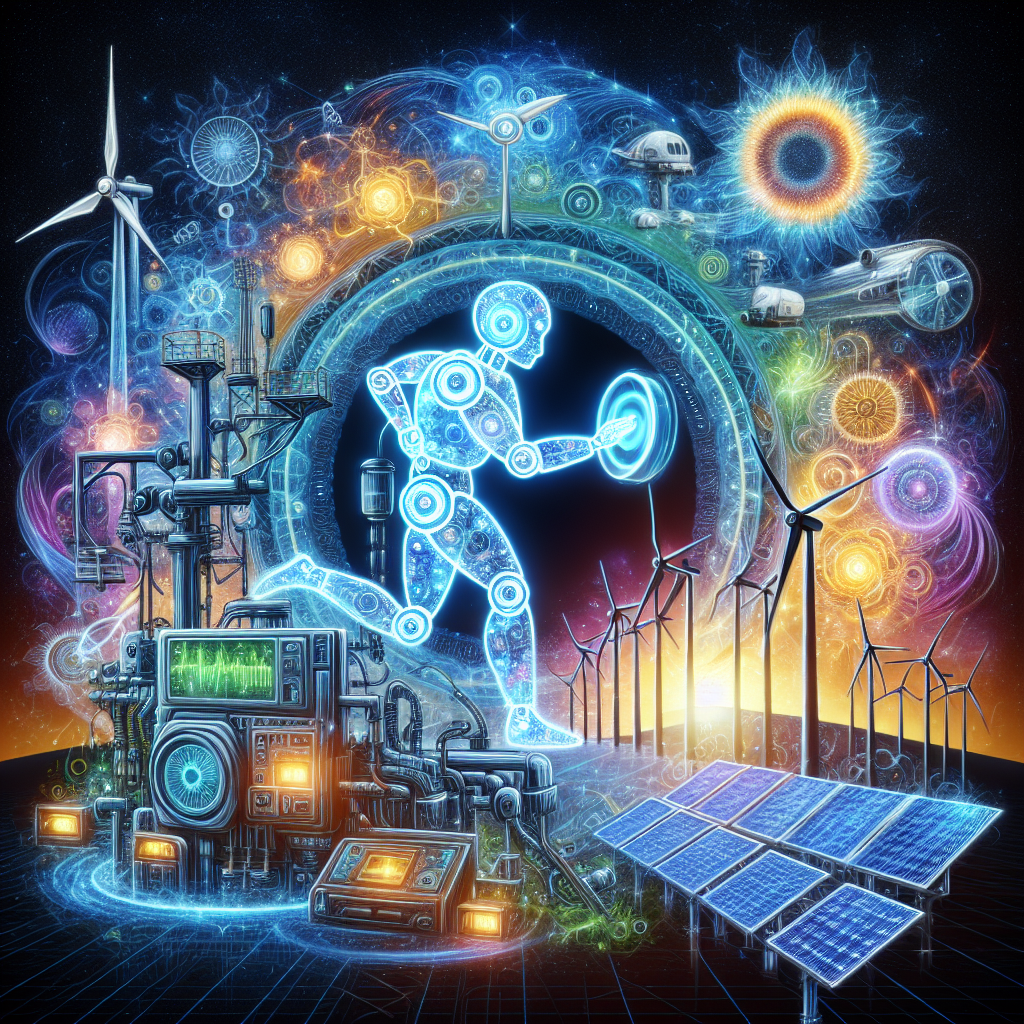With the increasing threat of climate change and the need to transition to sustainable energy sources, leveraging artificial intelligence (AI) has become a crucial tool in driving renewable energy practices. AI technology has the potential to revolutionize the renewable energy sector by optimizing energy production, improving energy efficiency, and reducing costs. In this article, we will explore how AI is being used to advance sustainable renewable energy practices and address some common questions about this emerging technology.
AI in Renewable Energy:
AI is being used in various ways to enhance renewable energy practices, including:
1. Predictive maintenance: AI-powered predictive maintenance systems can analyze data from renewable energy systems to identify potential issues before they occur. This proactive approach helps prevent costly downtime and improves the overall reliability of renewable energy systems.
2. Energy forecasting: AI algorithms can analyze weather patterns, energy demand, and other variables to accurately predict energy production from renewable sources such as solar and wind. This information can be used to optimize energy storage and distribution, ensuring a stable and reliable energy supply.
3. Grid optimization: AI can optimize the operation of power grids by balancing the supply and demand of energy in real-time. This helps reduce energy waste, lower costs, and improve the overall efficiency of renewable energy systems.
4. Smart energy management: AI-powered energy management systems can optimize energy consumption in buildings, homes, and industrial facilities. By analyzing energy usage patterns and adjusting settings accordingly, AI can help reduce energy waste and lower energy bills.
5. Resource optimization: AI can optimize the use of renewable energy resources by determining the most efficient placement of solar panels, wind turbines, and other energy systems. This helps maximize energy production and minimize environmental impact.
FAQs about AI in Renewable Energy:
Q: How does AI improve the efficiency of renewable energy systems?
A: AI can improve the efficiency of renewable energy systems by optimizing energy production, reducing downtime, and minimizing energy waste. By analyzing data in real-time and making adjustments accordingly, AI can help maximize the performance of renewable energy systems.
Q: Can AI help reduce the costs of renewable energy?
A: Yes, AI can help reduce the costs of renewable energy by optimizing energy production, improving energy efficiency, and reducing maintenance costs. By implementing AI-powered systems, renewable energy operators can lower their operational expenses and increase their profitability.
Q: Is AI being used to improve the reliability of renewable energy systems?
A: Yes, AI is being used to improve the reliability of renewable energy systems by predicting potential issues before they occur, optimizing energy distribution, and ensuring a stable energy supply. By proactively addressing maintenance issues and balancing energy production, AI can help prevent downtime and improve the overall reliability of renewable energy systems.
Q: What are some challenges of implementing AI in renewable energy?
A: Some challenges of implementing AI in renewable energy include data privacy concerns, integration with existing systems, and the need for skilled AI professionals. Overcoming these challenges requires careful planning, collaboration with industry partners, and investment in training and education.
Q: How can businesses benefit from leveraging AI for sustainable renewable energy practices?
A: Businesses can benefit from leveraging AI for sustainable renewable energy practices by reducing operational costs, improving energy efficiency, and enhancing their environmental sustainability. By adopting AI-powered systems, businesses can increase their competitiveness, attract environmentally conscious customers, and contribute to a greener future.
In conclusion, leveraging AI for sustainable renewable energy practices offers numerous benefits, including improved efficiency, reduced costs, and enhanced reliability. By harnessing the power of AI technology, the renewable energy sector can accelerate the transition to clean, renewable energy sources and help mitigate the effects of climate change. As AI continues to evolve and expand its capabilities, the potential for innovation in renewable energy practices is limitless.

